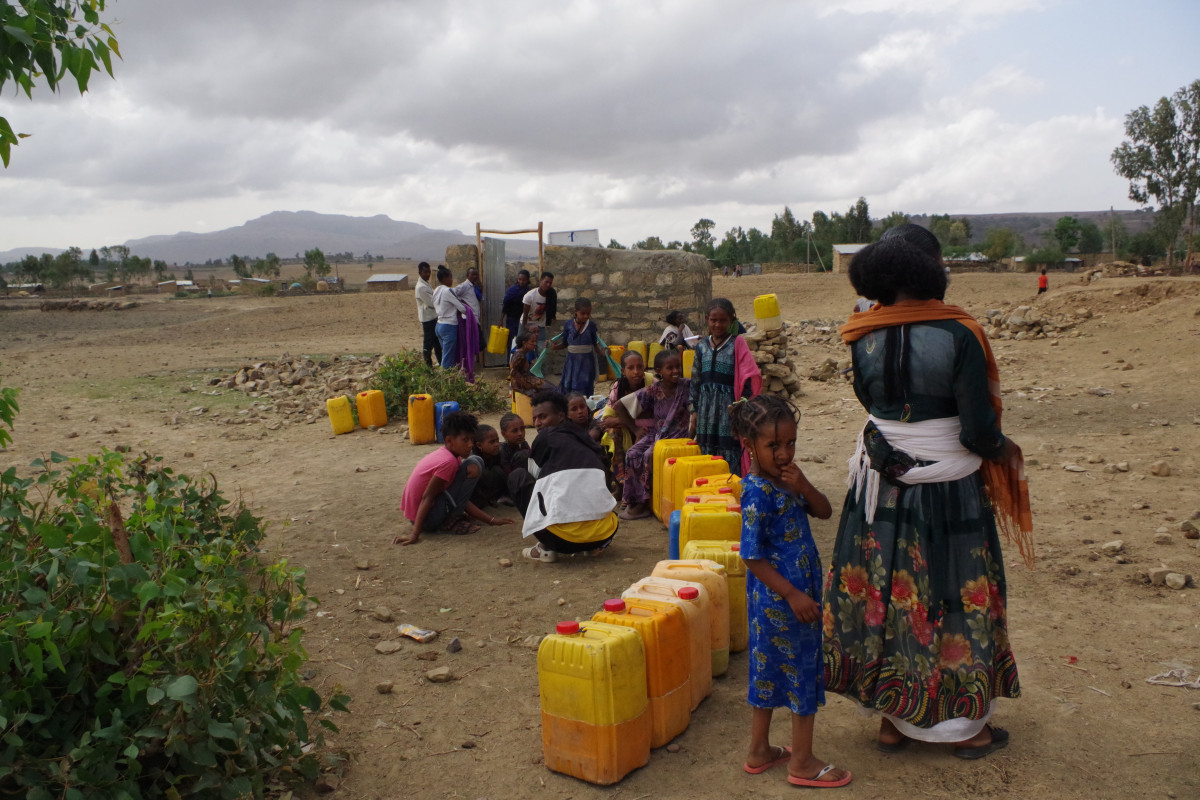Restoring Water Access in Tigray
Published: Aug 21, 2024 Reading time: 4 minutes Share: Share an articleThe devastating two-year war in Ethiopa's Tigray region left significant damage to infrastructure, including the destruction and deactivation of water access points. With European Union funding, we helped restore water access for local villagers.

Living without water is unimaginable, but the people of Tigray have endured challenging times, deprived of their right to clean water. The region spent two years in war, leaving the community without necessities. Following the peace deal signed between the Ethiopian federal government and the Tigray ruling party, Tigray is now recovering from the trauma of war.
We met Birey W/tinsay in Samre Woreda, roughly 70 kilometres from the regional capital, Mekele. She lives in My Woyane Kebele, near one of the recently rehabilitated water points. Birey, a 40-year-old single mother of four, supports her family by selling firewood. She remembered the difficult times her community faced during the war, one of which was living without access to clean water, which led to insecurity and serious health risks.
Before the war, her village had access to two water points: one suitable for drinking and the other salty and only for their animals. These wells were damaged and unusable after the war broke out.
We rehabilitated nine water wells in the two woredas, providing Birey and her community access to clean water near their homes. She detailed how much it has helped them, "Now we have clean water available during the day. We drink it without feeling insecure. It's clean, nearby, and tastes sweet. The community's health has also improved, and we are very happy."
In Birey's village, the community now has access to clean water, even accommodating nearby villagers who lack access. Of course, this creates a burden, forcing administrators to limit each household to two jerry cans of water per day to ensure fair distribution.
Kidan Tesfay from another Woreda, Seharti, Addis Alem Kebele, has a leg injury and cannot carry a full jerrycan. Previously, she had to walk an hour on rugged roads to fetch water from a river or pond, relying on other villagers for help. The rehabilitated water point has eased this burden, as villagers are more willing to help now that the well is nearby.
We operate in Samre and Seharti Woredas after surveying with the regional water bureau to find the many wells destroyed by the war and identifying water access. We repaired nine wells in these two weredas. The government couldn't handle the situation alone due to financial difficulties. However, with the wells now repaired, the community is benefiting.
Birhane Tsegay, a WASH Committee member, mentioned that the community hired a guard to protect the wells.
Thanks to the European Union, approximately 733 households in these two Woredas have benefited from the rehabilitated wells, reaching 3,782 community members. The repairs of these nine wells were completed in just two months, costing over ETB 1.8 million.
We are proud to have restored the wells, but Tigray still has many damaged water points. According to the assessment report, numerous water points remain out of service. Continuous support is needed to restore clean water access for the entire Tigray society.



